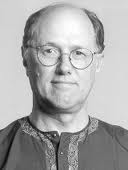What is Authentic Patriotism?
by George Wolfe
Recently, a former student of mine posted some thoughtful questions on his Facebook page regarding the topic of patriotism. The questions he asked were a result of National Football League players kneeling for the National Anthem to protest police brutality and racial injustice. His thoughts provoke us into asking, “How should we define what is, or is not, patriotic?”
When I watch people on television during the performance of our National Anthem, there are many who appear to just be going through the motions, people who are not appreciating the words of the anthem, much like a person in church saying the Lord’s Prayer or the Apostle’s creed without thinking deeply about what is being recited.
What about those individuals who stand for the National Anthem but do not place their hand over their heart, or those who choose not to sing the words. And how about people who do not display the American flag outside their homes on Memorial Day or Veterans Day. Are they exhibiting a lesser degree of patriotism?
My mother was a dedicated elementary school teacher for over 30 years. I recall her being frustrated by a few students in her classes who refused to say the Pledge of Allegiance to the Flag each morning. They were children of parents who were from the Jehovah’s Witnesses Christian denomination. Were they being unpatriotic in observing their right to abide by the dictates of their religious beliefs?
Vice President Pence, who is not shy about professing his religious beliefs, objects to NFL players kneeling for the National Anthem, but in other contexts kneeling is considered an expression of devotion. Roman Catholics and Episcopalians genuflect or kneel before the alter in their churches. So why is it that kneeling for the National Anthem, particularly if a person also has their head bowed as if in prayer, should be considered unpatriotic?
What I object to is to how politicians use patriotism to score political points. Donald Trump, calling on NFL team owners to fire players who kneel for the National Anthem, and Mike Pence walking out of a Colts football game while insisting the players are disrespecting the flag and military personnel, are not the only high-ranking politicians to evoke the “sin” of being unpatriotic. At the beginning of the U.S. preemptive invasion of Iraq to oust Saddam Hussein, President George W. Bush declared that people who didn’t support the war were unpatriotic.
Clearly, authentic patriotism should not be defined by the necessity of agreeing with a particular political policy or practice. The freedom to dissent lies at the heart of our democracy. If anything is unpatriotic, it is any action that interferes with this right.
I enjoy watching the NFL games on television, and occasionally attending a Colts game, but let’s not turn patriotism into a political football.
George Wolfe is Professor Emeritus and former director of the Ball State University Center for Peace and Conflict Studies. He is also chair of the Muncie Interfaith Fellowship, is a trained mediator, and is the author of The Spiritual Power of Nonviolence: Interfaith Understanding for a Future Without War.



